Jonathan Sumption
The reputation of Sir Edward Grey, Britain’s foreign secretary from 1905 to 1916, has never recovered from the pasting he received in Lloyd George’s war memoirs. Lloyd George thought that his deliberate ambiguity about Britain’s intentions led us into the first world war. If you read just one book of history this Christmas, it should be T.G. Otte’s re-evaluation in Statesman of Europe: A Life of Sir Edward Grey(Allen Lane, £35). This beautifully written biography of one of the most humane, perceptive and intelligent diplomats is a wistful reminder of what Britain might have been like if Lloyd George had not destroyed the Liberal party.
If one is not enough, try Ambrogio A. Caiani’s To Kidnap a Pope: Napoleon and Pius VII (Yale, £20). It is the story of the struggle, fought with cunning, not force, between the forgotten Roman nobleman Barnaba Chiaramonti, who became Pope Pius VII, and the all-too-well-remembered Napoleon. Of course, Pius was helped by Napoleon’s inability to understand the power of religious sentiment and his grotesque misjudgments in the last eight years of his public career. Still, it is quite something to have been the only man apart from Castlereagh who consistently got the better of the great dictator.
Graham Robb
In a state of mild post-lockdown hysteria, I tittered my way through Anthony Buckeridge’s brilliantly plotted Jennings and Darbishire series (House of Stratus, £7.99 each). I relished Paul Jones’s disabused and well-balanced history of ridiculously resilient End-to-Enders: End to End: The Land’s End to John o’Groats Cycling Record (Little, Brown, £16.99) and I devoured the ‘punk poet’ John Cooper Clarke’s relentlessly deadpan I Wanna Be Yours (Picador, £7.99). This is not a ‘ponderous trudge through the turgid facts of an ill-remembered life’ but the kind of autobiography Rimbaud might have written if he had been a Mancunian stand-up comedian. Clarke’s poems are now on the national curriculum. His joyous Season in Hell might inspire a new generation of poets: ‘You get to wear fine clothes and perfume and nobody pulls you up on it. You get out of bed late in the day and nobody calls you a lazy bastard.’
Mark Cocker
Books Do Furnish a Life: Reading and Writing Science by Richard Dawkins (Bantam Press, £25). This is more than just a collection of journalism in honour of its author’s 80th birthday. The book has an overarching unity and presents a panoramic survey of his intellectual career. There are occasional moments of delicious savagery as Dawkins dismantles an opponent. Much more often, he celebrates the work of fellow scientists and, throughout the entire 460 pages, one can enjoy the unfailing clarity of his thought and prose, as well as the grandeur of his vision of life on Earth.
Boyd Tonkin
Critics like to damn literary biography as a paltry, sordid and dying art. Somehow, the alleged corpse roars and dances. Two epic bricks delivered knockout performances: Blake Bailey’s Philip Roth (Cape, £30), which got itself cancelled in the US, and Richard Zenith’s Pessoa: An Experimental Life (Allen Lane, £40). One superstar author, voracious and insatiable, did everything; the other, a timid Lisbon business translator, did almost nothing. Both peopled unique planets; both have found wholly compelling interpreter-chroniclers.
Maria Stepanova’s wonderful In Memory of Memory, translated by Sasha Dugdale (Fitzcarraldo, £14.99) is not quite biography but blends Russian family memoir, tragic history and literary dialogue with fore-runners — from Tsvetaeva to Mandelstam — to dazzling effect. Russian giants (Chekhov, Tolstoy, Gogol) also congregate in George Saunders’s A Swim in a Pond in the Rain (Bloomsbury, £16.99): not just astute, humane lit crit but an inspirational manifesto for the art of fiction.
David Crane
There seems to be no sign of interest in the first world war easing off. As We Were by David Hargreaves and Margaret-Louise O’Keefe (Whitefox Publishing, £100), a massive, four-volume 2,000-plus-page history of the war as it played out week by week, is a must for anyone seriously interested in the subject. The Commonwealth War Graves Commission has been going through a difficult time, so it’s good to be reminded of the extraordinary work it has done by Robert Sackville-West’s balanced and perfectly pitched The Searchers: The Quest for the Lost of the First World War (Bloomsbury, £25).
Claire Lowdon
This year I fell in love with two books that are not about love. Vivian Gornick’s The End of the Novel of Love(Picador USA, £12.40) is an elegant, accessible collection of short, critical essays, each focusing on a single writer: Jean Rhys, Willa Cather, Grace Paley… Gornick persuasively argues that romantic love as a literary metaphor for self-actualisation is no longer valid. Real life, however, hasn’t got the memo — as Megan Nolan knows only too well. The narrator of her superlative debut novel, Acts of Desperation (Cape, £14.99), needs ‘a man’s love to feel like a person’; love ‘sustains and validates the rotten moments you would otherwise be wasting’. And so she falls into a degrading relationship with the beautiful but cruelly indifferent Ciaran. Nolan might be telling an old, old story, but she stakes out thrilling new territory in an intense, unflinching novel that is always intelligent and utterly unafraid of ugliness.
Honor Clerk
For once, no problem with Christmas presents this year. The World According to Colour by James Fox (Allen Lane, £25) is a brilliantly fluent and readable history of colour, galloping across a wide cultural and scientific landscape. Rather late with the discovery, but my contender for a successor to Lee Child is the Australian writer Jane Harper. The author of four books to date, her latest in paperback is The Survivors (Abacus, £8.99). Probably best not to binge- read the lot, as a formula does emerge, but every one is a compelling page-turner.
Ysenda Maxtone Graham
Jane Ridley’s George V: Never a Dull Moment (Chatto & Windus, £30) is so sparklingly incisive about both the king and Queen Mary that it almost counts as a double biography. The pheasant-shooting, stamp-collecting, moderating monarch and his bejewelled, shopaholic consort are beautifully portrayed in all their complexities.
Katharine Campbell’s father, Sir Sholto Douglas, senior commander in the RAF during the second world war, suffered from sleepwalking nightmares about the Nuremberg trials. As a child, she remembers him pushing a tea trolley along the corridor and saying: ‘I have to go to a meeting about the Sentences’. In her moving biography of him, Behold the Dark Gray Man (Biteback, £20), she traces the story of his trauma-filled career, which ended with being military governor of the British Zone in Germany at the end of the war, signing death warrants.
Catherine Ostler’s The Duchess Countess: The Woman who Scandalised a Nation (Simon & Schuster, £25) is a lively portrait of the resilient Elizabeth Chudleigh (b. 1721), who was found guilty of bigamy and then hurtled off to St Petersburg to become best friends with Catherine the Great.
Philip Hensher
People have been telling me all my life that Beowulfis the business. God knows I’ve tried. But only this year did I get the full Cortez-on-a-peak-in-Darien experience, with Maria Dahvana Headley’s stupendous frat boy version (Scribe, £9.99). It’s resonant with slightly self-doubting table-thumping, exhilarating and dangerous. Otherwise, for me the best book this year was David Kynaston’s glorious On the Cusp: Days of ’62 (Bloomsbury, £18.99). It’s rare to read anything so teeming with life — so many diverse voices offering their own glimpse of a world which, as Kynaston convincingly argues, was changing more dramatically than ever before or since. Many people have written about this period between the end of the Chatterleyban and the Beatles’ first LP, but few have given such a rich sense of living through it.
George V is, in a way, the most cryptic of monarchs — or was there nothing much there? He fascinates me, and Jane Ridley’s marvellous life, winningly subtitled Never a Dull Moment (Chatto & Windus, £30), gives the compelling sense of a hard nut being cracked. Paula Byrne’s The Adventures of Miss Barbara Pym (William Collins, £25) answers all our questions, and then some. The account of Pym’s youthful enthusiasm for the Nazis was the most startling thing I read all year. Amartya Sen’s memoir Home in the World (Allen Lane, £25) beautifully conveys the immense, curious charm of his unapologetic high intelligence.
I couldn’t get very excited about much fiction this year — the Booker shortlist was the most boring I can remember. On the other hand, Keith Ridgway’s novel/short story cycle A Shock(Picador, £16.99) is full of rude life. Colson Whitehead’s Harlem Shuffle (Fleet, £16.99) is glorious: a teasing display of lives weaving in and out of the fates decreed by literary genre. And Kazuo Ishiguro’s Klara and the Sun (Faber, £20) is his best book since The Unconsoled, the complexity of one’s final response in no way muffling its power.
Lucasta Miller
In The Turning Point (Jonathan Cape, £25), Robert Douglas-Fairhurst pulls off an extraordinary trick of immersive history, taking a single year in Charles Dickens’s life, 1851, and placing the personal story of one of the most extraordinary writers ever to have lived within his social and cultural context. In historical fiction, I got a similar experience of time-travel from Lauren Groff’s Matrix(Heinemann, £16.99), inspired by the real-life medieval poet Marie de France.
I’m far from being the target readership for books on business management, but John Tusa’s memoir On Board(Bloomsbury Business, £20), in which he opens up about his experiences on the boards of arts organisations, from the British Museum to English National Opera, is witty, honest and a must read for anyone who’s interested in our national culture and how it’s run — or indeed for anyone who’s ever served on a committee of any sort.
William Dalrymple
This year, two remarkable books on archaeology gave me particular pleasure. Edmund Richardson’s Alexandria: The Quest for the Lost City(Bloomsbury, £25) is not, as its title might suggest, about Egypt, but tells one of the great stories of Afghan exploration and espionage. Charles Masson’s desertion from the East India Company and his extraordinary travels and discovery of Hellenistic Afghanistan are brought to life with passion, style, scholarship and empathy. Until now no one has uncovered the full, heartbreaking truth either about Masson’s remarkable life or his death and burial in an unmarked grave. Richardson is a new star, whose painstaking research and evocative prose have resulted in a brilliant biography.
In River Kings (HarperCollins, £9.99) the Scandinavian archaeologist Cat Jarman writes about the Vikings with great skill, clarity and narrative drive. Rather unfashionably, she likes her Vikings violent, and her tale — replete with witches, human sacrifice, Greek fire and funeral orgies — is as lively as any Netflix Viking romp and a great deal more intellectually satisfying. Jarman has an enviable gift for turning dry archaeological data into thrilling human stories as she weaves cutting-edge science with chronicles, histories and Nordic sagas, moving effortlessly from laboratory readings of carbon-14 to tales of the Icelandic bard Snorri Sturluson and legends of the Valkyries. In this way she gradually reveals the extraordinary history of the Vikings’ activity, from Greenland to the bazaars of Baghdad.
On his trip to the Amur river, Colin Thubron’s horse threw him in a Mongolian bog, leaving him severely injured. Many much younger writers would have given up and called in a helicopter. But with the grit of an explorer from an earlier age, Thubron doggedly carried on, riding, limping and boating 3,000 miles along the river, past the razor wire and watch-towers of the Russian and Chinese border, surviving military manoeuvres, arrests, police interrogations and threatened deportations, as he moved slowly through Mongolia, Siberia and Manchuria until he finally reached the Amur’s Pacific mouth. The book he produced at the end of this ordeal, The Amur River (Chatto & Windus, £20), is no less remarkable than the journey itself: a miraculous late-style masterpiece, the equal of any of his earlier works, which will cement his reputation as one of our greatest prose writers in any genre.
Antony Beevor
Colin Thubron’s The Amur River (Chatto & Windus, £20). Thubron is regularly hailed as our greatest living travel writer, and in a field where the quality of writing is already high, his prose is the most poetic of all. From the very first sentence you know that you are in the hands of a great master. He conveys the solitude and bleak beauty of the east Siberian taiga along the Amur with compelling simplicity. Yet in these vast, uninhabited areas the dangers that he and his guides face on their shaggy Mongol horses easily match those of forerunners from the 19th century. Thubron, at an age when most contemporaries would be on nothing more taxing than a Saga cruise, reveals an astonishing endurance, despite broken ribs from his horse rolling on him. The Amur River is an unforgettable classic of the genre.
Cressida Connolly
For my money, John Burnside is by far the best British poet alive. His latest collection, Learning to Sleep (Cape Poetry, £10), contains some lovely verses which examine with melancholy and wonder the sensations of being in the natural world. His poem ‘Aubade’ was perhaps written too late for inclusion here, but can be found online — first love, seen as if down a telescope, decades on. I read it over and over again, marvelling at its concision and beauty.
These Precious Days, a collection of essays by Ann Patchett (Bloomsbury, £16.99), is so full of heart that it practically throbs in your hands. The piece called ‘How to Practice’, about giving her vintage typewriter to a bookish eight-year-old, is one of the finest essays I’ve ever read. The whole volume is a delight: a celebration of friendship and generosity and the flare of those unexpected coincidences which light a life.
Duncan Fallowell
The Films of Andy Warhol: Catalogue Raisonné 1963-65(Whitney/Yale, £75). What a treasure! It details the most courageous work of the 20th century’s greatest taboo-breaker — especially welcome as so many taboos need breaking all over again. Female Homosexuality in Ancient Greece and Rome by Sarah Boehringer (Routledge, £34.99) reminds us that there was once a time when people fell in love quite naturally.
Two welcome reprints this year: The Most Dangerous Man in America by Bill Minutaglio and Steven L. Davis (John Murray, £10.99) shows the high priest of LSD, Timothy Leary, on the run in all his madcap glory; and The Old Straight Track by Alfred Watkins (Head of Zeus, £9.99): careful erudite topography in the grand Enlightenment tradition, which nevertheless presents a vision of Herefordshire that is awe-inspired.
Hugh Thomson
Francis Pryor is always good value. In Scenes From Prehistoric Life (Apollo, £25) he cherrypicks the most interesting recent discoveries about Britain’s past before the Romans and leaves out the dull bits for those academic surveys which give archaeology such a bad name.
For more recent history, Simon Jenkins’s Europe’s 100 Best Cathedrals (Viking, £30) is impressive. Having compiled lists of England’s best churches, houses and indeed views, it was inevitable that our finest contemporary gazetteer would move on to the ‘ships of heaven’. While he awards points more on the basis of architecture than atmosphere or location — both Ely and Palma get shortchanged as a result — it is in the nature of such books to prompt debate.
And in the myriad of often plodding nature writing, one book stands out as superb: Charles Foster’s study of the swift, forever on the wing, in The Screaming Sky (Little Toller, £15). Concise and beautifully written, it has a certain obsessive quality which is attractive and matches its subject.
Richard Davenport-Hines
The Poems (1961-2020)by Derek Mahon (Gallery Press, £22) is an all-surpassing joy. Mahon, who died last year, was classed by his fellow Irishman Michael Longley among the ‘poetic conservatives’. He was an arch formalist whose poetry mourned the loss of ceremonial habits and orderly traditions, and railed against ‘progress’, consumerism, despoiled landscapes and spiritual vacuity. The richness, fluency, exactitude and springiness of his vocabulary, the heart-stopping emotions, the love of truth, the playful ambushes of his rhymes, the decisive morals that are drawn from some of his poems, are elating to anyone who cares about language. Mahon’s poetry made me realise, in late middle age, that it was time for serenity to replace intensity as my best temper for living. Sample his glorious variety with these five poems: ‘Being a Dog’, ‘Courtyard in Delft’, ‘Harbour Lights’, ‘Monochrome’, ‘Penshurst Place’. Alas, this final collection omits some early poems, including one with the bumptious opening line: ‘When I sold my fake Vermeers to Goering.’
Peter Frankopan
Being stuck at home meant it was a vintage year for reading. I loved The Island of Missing Trees (Penguin, £14.99) by Elif Shafak, who is such an original thinker and wonderful writer. Snow Country by Sebastian Faulks (Cornerstone, £20) had me entranced, capturing the world of central Europe beautifully. Marie Favreau’s The Horde: How the Mongols Changed the World (Harvard, £23.95) is terrific — a really important reassessment of the origins of one of the great empires in history. I greatly enjoyed Fitzroy Morrissey’s Short History of Islamic Thought (Apollo, £16.99) and also Franck Billé and Caroline Humphrey’s sparkling book On the Edge: Life Along the Russia-China Border (Harvard, £23.95), which transported me to familiar and new places. Dan Jones’s Powers and Thrones: A New History of the Middle Ages(Head of Zeus, £25) was a great achievement, pulling together many strands with aplomb. Rebecca Roberts’s Gold of the Great Steppe (Paul Holbertson, £27.50) is a magnificent catalogue for an exhibition at the Fitzwilliam, Cambridge, which runs till 30 January.
Naomi Alderman
George Saunders’s A Swim in a Pond in the Rain (Bloomsbury, £16.99) is a masterclass in writing, and in reading Russian literature — like sitting in the most stimulating class you ever took at university. A real treat. Whereabouts (Bloomsbury, £14.99) is part of Jhumpa Lahiri’s fascinating and inspiring project of writing all her new work in Italian. It’s a calming and exacting narration of a woman’s slightly odd-angled life alone in a city. I particularly enjoyed the description of the protagonist slowly buying all the objects from someone else’s house and placing them in her own. There could be no better metaphor for learning to live in a language outside one’s own heritage. Lauren Groff’s Matrix (Heinemann, £16.99) is a glorious, spine-stiffening evocation of life in a medieval convent, a fictional biography of the poet Marie de France. It’s as brightly lit as an illuminated manuscript and would make the most perfect Christmas present imaginable.
Nicholas Shakespeare
The product of 30 years’ reporting, Michela Wrong’s Do Not Disturb (Fourth Estate, £20) demands we revise the entire history of Rwanda’s 1994 genocide, in which upwards of a million Hutus and Tutsis were slaughtered during a three-month frenzy. She places the blame, devastatingly, at the door of Paul Kagame, the de factoruler of Rwanda since 1996, suggesting that ‘the leader routinely labelled in the West as “the Man Who Ended the Genocide” might actually also have started it’. The result is a classic that examines her own journalistic complicity in the hollowness at the heart of power.
Closer to home, a Tory MP focuses his lorgnettes on parliament in the unexpurgated Henry ‘Chips’ Channon: The Diaries 1938-1943 (Hutchinson, £35), edited by Simon Heffer. ‘Oh! The excitements, the thrills, the atmosphere of ill-concealed nervousness and self-interest which comes over the H of C when there is a political crisis on, or rumours of a reshuffle.
James Walton
Graeme Macrae Burnet’s Case Study (Saraband, £14.99) is a novel about a 1960s psychologist where the blurring between fact and fiction constantly wrong-foots its readers while still keeping us lavishly entertained. In Meg Mason’s almost eerily accomplished debut Sorrow and Bliss (Weidenfeld & Nicolson, £14.99), the narrator Martha has suffered from mental illness since her teens. Yet, without ever playing down her pain, the result is often disconcertingly funny.
Even so, my favourite new novel of 2021 was, by some distance, Jonathan Franzen’s Crossroads (Fourth Estate, £20), in which he sticks to such trusty fictional methods as thoroughly imagined characters and propulsive narrative momentum to provide a wholly absorbing portrait of a Midwest family. After all the attacks from people suspicious of high-minded white male authors of the old school, Franzen here triumphantly proves the literary equivalent of those footballers who do all their talking on the pitch.
Got something to add? Join the discussion and comment below.
Get 10 issues for just $10
Subscribe to The Spectator Australia today for the next 10 magazine issues, plus full online access, for just $10.
You might disagree with half of it, but you’ll enjoy reading all of it. Try your first month for free, then just $2 a week for the remainder of your first year.


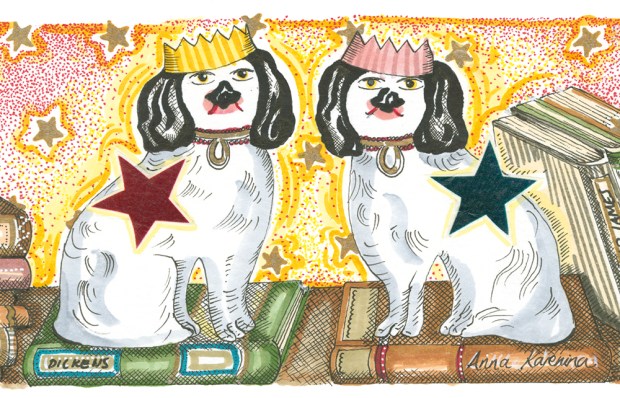
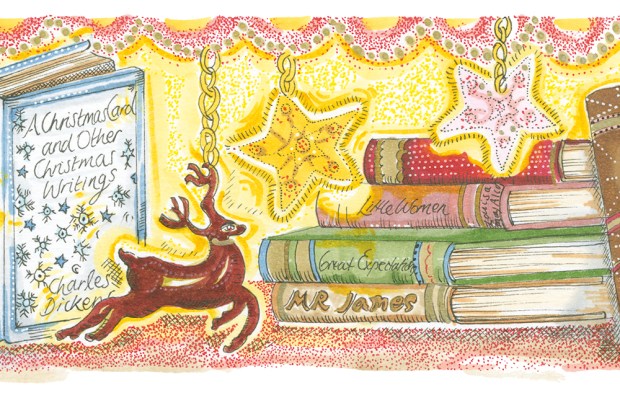
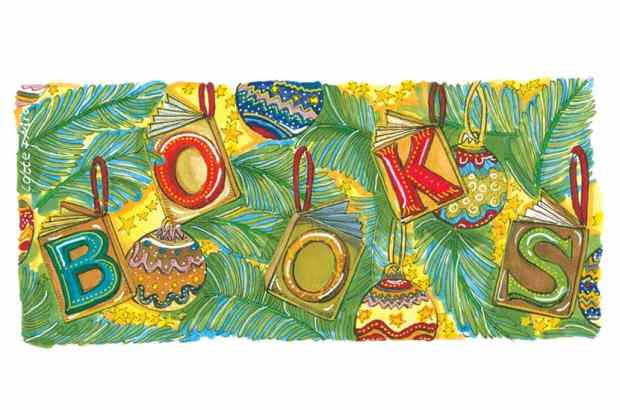
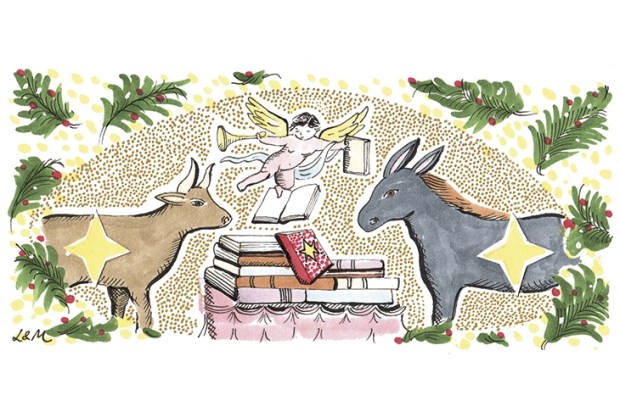
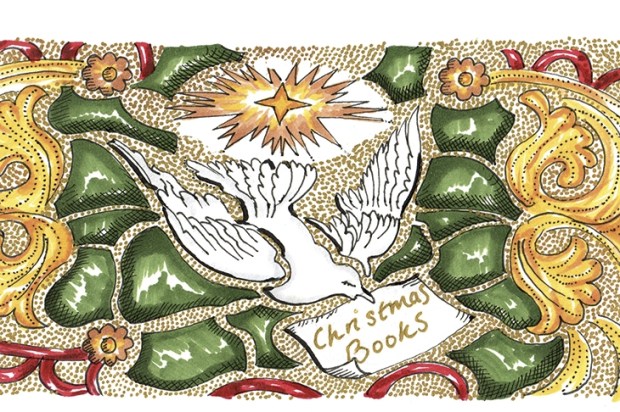
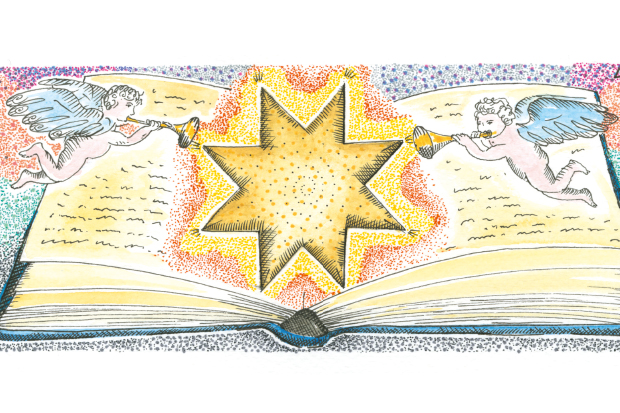






Comments
Don't miss out
Join the conversation with other Spectator Australia readers. Subscribe to leave a comment.
SUBSCRIBEAlready a subscriber? Log in